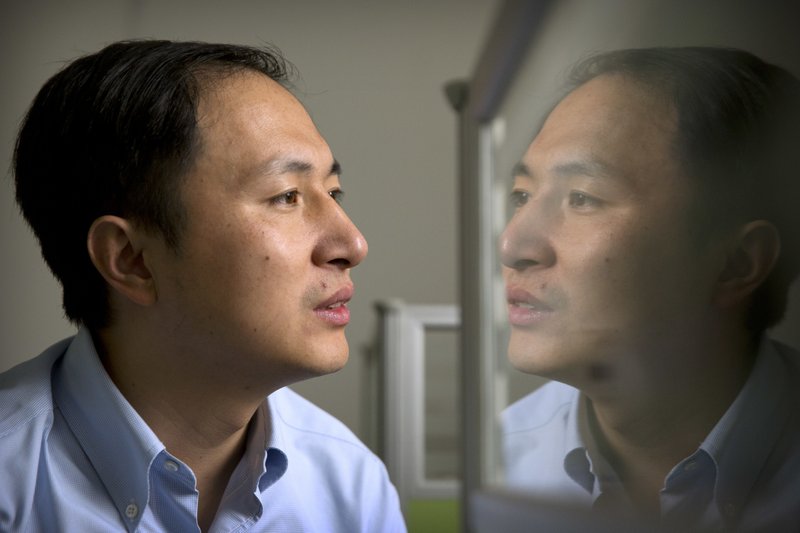
He Jiankui is reflected in a glass panel as he works at a computer at a laboratory in Shenzhen, South China's Guangdong province, Oct 10, 2018. (Photo: IC)
A researcher who claimed to have created the world's first gene-edited babies was sentenced to three years in prison and fined 3 million yuan ($430,000) for illegal practice of medicine, a court in Shenzhen, Guangdong province, said on Monday.
In November 2018, He Jiankui said he had used genome editor CRISPR to produce twin girls immune to HIV, provoking an outcry over bioethics and prompting an immediate investigation by authorities.
The court said He, as well as two other people on his research team-Zhang Renli and Qin Jinzhou from two medical institutions in Guangdong-were not licensed as doctors, deliberately violated national regulations on scientific research and medical management in pursuit of fame and wealth and crossed the bottom line of scientific and medical ethics.
He pleaded guilty in court. It was unclear whether he would file an appeal.
He launched the project in 2016 to edit genes in human embryos in the name of producing HIV-resistant babies after learning about the possible commercial benefits of the technology, the court said.
He forged ethical review documents through other parties, recruited multiple volunteer couples with HIV-positive fathers, edited genes of human embryos and implanted them in the mothers through assisted reproduction technology, according to the court.
The experiments resulted in two women becoming pregnant and the birth of three gene-edited babies, the court added.
He conducted the experiments knowing that it violated State regulations and medical ethics, without the safety and effectiveness of the technology having been verified, the court said after hearing the case, which was held in private due to privacy concerns.
Zhang was sentenced to two years in prison and fined 1 million yuan. Qin was sentenced to 18 months in prison with a two-year reprieve and fined 500,000 yuan.
He Jiankui shocked the scientific world and received widespread condemnation soon after he disclosed his experiments, with scientists across the world raising questions about ethical norms for gene-editing research and calling for better international oversight.
In December 2018, as a result of the incident, Premier Li Keqiang urged scientists and research institutes to exercise more integrity and said any academic misconduct should be severely punished.
The results of the investigation, released in January by provincial authorities, also found that He organized and financed the experiments himself in pursuit of personal fame, evaded supervision by forging documents and directly violated China's regulations against using gene-editing technologies on human embryos for purposes of reproduction.
After the investigation, people involved in the case were banned for life from engaging in work related to assisted reproductive technology or applying for any research funding or human genetic resources by health and science and technology departments.
The incident also prompted stricter measures in overseeing academic ethics and integrity. China's draft civil law, which has been submitted to the top legislative body, has added a new item requiring all medical and scientific research related to human genes and embryos follow strict laws and not break ethical codes. The government announced a plan in July to establish a national science and technology ethics committee tasked with the supervision of the sector.
The State Council also released a regulation on the management of human genetic resources that took effect on July 1, aiming to protect human genetic resources, promote the proper use and tighten supervision.


